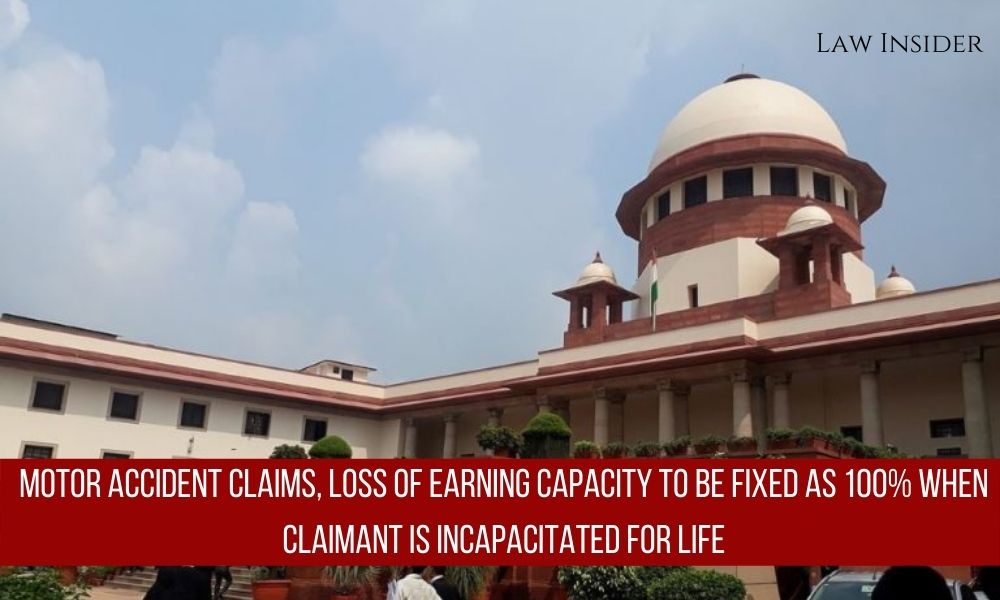Anushka Sharma –
Published On: October 28, 2021 at 09:30 IST
The Supreme Court has ruled that the loss of earning ability must be set at 100% when a claimant-motor accident victim is handicapped for life and confined to home.
As a result, a person is entitled to compensation not only for the disability sustained as a result of the accident, but also for the loss incurred as a result of the injury and his incapacity to live the life he did before the life-altering incident.
The Court went on to say that the extent of economic loss caused by a disability cannot be compared to the extent of permanent incapacity.
The Bench comprising Justices R. Subhash Reddy and Hrishikesh Roy observed, “While the money awarded by Courts can hardly redress the actual sufferings of the injured victim (who is deprived of the normal amenities of life and suffers the unease of being a burden on others), the Courts can make a genuine attempt to help restore the self-dignity of such claimant, by awarding ‘just compensation’.”
The Court was debating an appeal filed by a victim of a car accident who had sustained serious injuries. He was a passenger on a motorcycle when it was hit by a car.
Both riders were hit, and the appellant had severe head injuries.
The victim also has severe cognitive damage, including hemiparesis and complete aphasia, with a prognosis of 69 percent lifelong disability.
The Court noted that the Motor Vehicles Act is social welfare legislation in nature, and its clauses make it plain that compensation must be calculated fairly.
Even if the physical disability is 69 percent, the functional disability is 100 percent in terms of the claimant’s loss of earning capability, according to the Court.
Also Read: What is the process of registration of Vehicle under Motor Vehicles Act, 1988?

